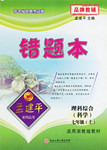题目内容
________ one thousand students went to work on the farm.
- A.As much as
- B.As much
- C.As many as
- D.As many

 孟建平错题本系列答案
孟建平错题本系列答案 超能学典应用题题卡系列答案
超能学典应用题题卡系列答案阅读下列各小题,根据括号内的汉语提示,用句末括号内的英语单词完成句子,并将答案写在答题卡上的相应题号后。
例:We________(起床)before dawn.It was still dark outside.(get) 答案:got up |
31.__________(最长的三条河流)in the world are the Niles,the Amazon,and the Changjiang River.(long)
32.Seldom____________(他们玩)video games ever since they entered college.(play)
33.The city__________(我成长的)is very hot and damp in summer.(grow)
34._________(我花了)one thousand dollars to buy the painting last week.(cost)
35.I fell so sick .I wish Mum__________(没有逼我)to eat so much.(force)
36.―You’d better go and_________(把你的轿车洗洗).
--No,I’ll do it myself.(wash)
37.With the rapid development of science and technology,I can’t imagine________
(我的家乡会是什么样子)in ten years.(what)
38.Ir is your efforts,not your intelligence,_______(决定)your success.(determine)
39.He looks sleepy.He must________(熬夜了)last night,writing the essay.(stay)
40.At present,lots of food,water,tents,and medicine__________(正在运往)from all over China and other parts of the world to the earthquake-stricken areas.(transport)